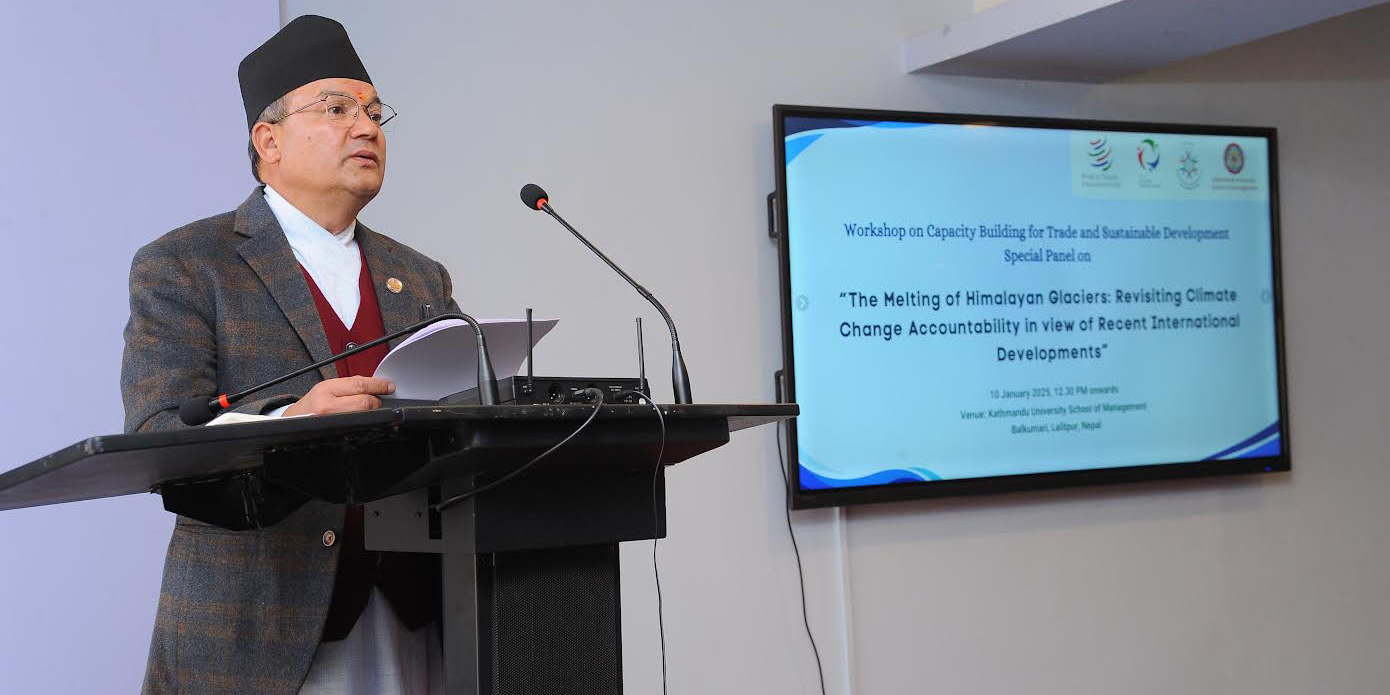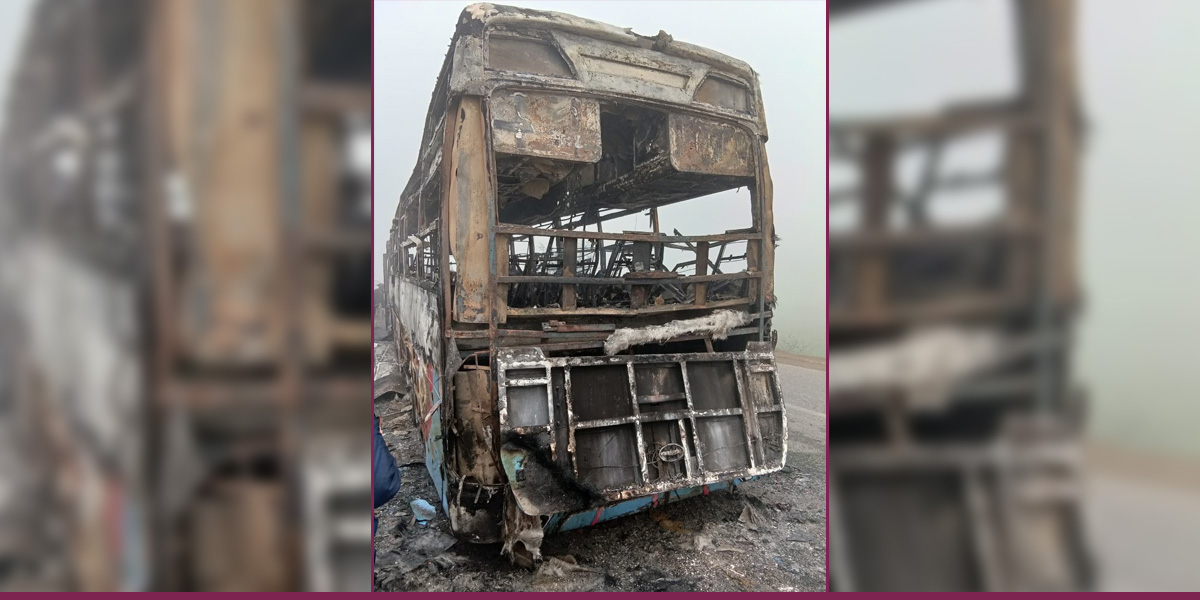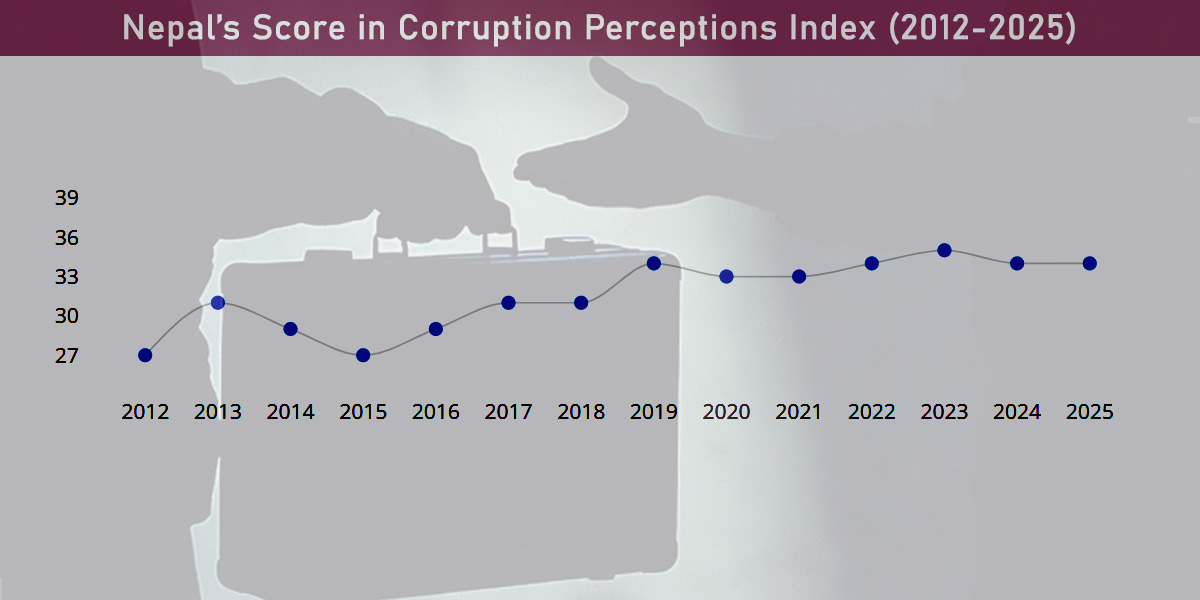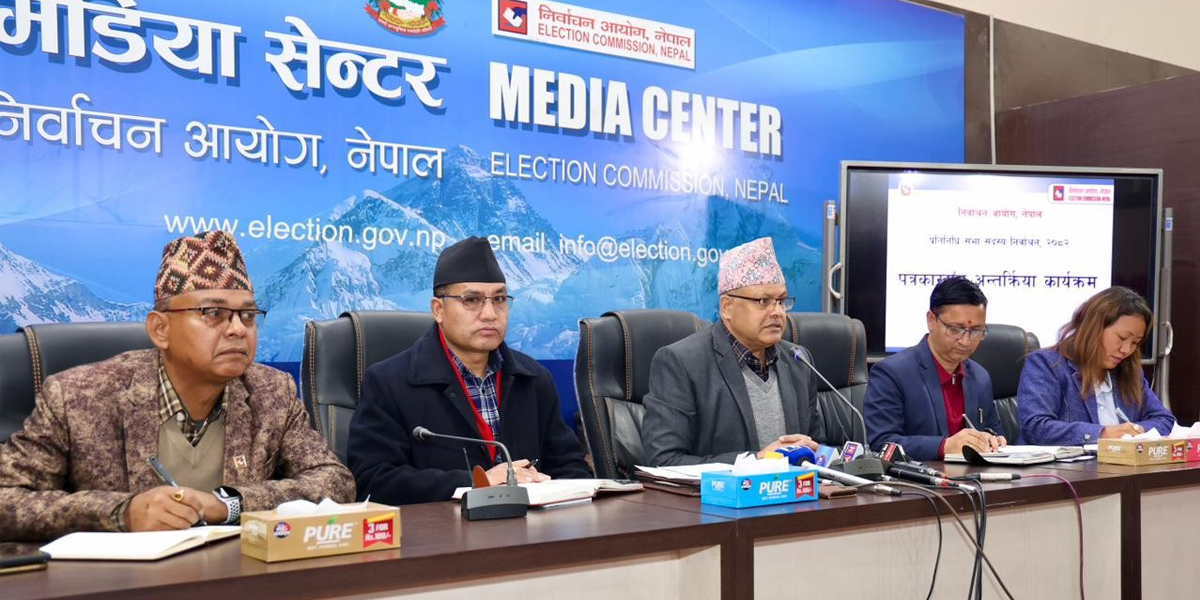
KATHMANDU: Minister for Forest and Environment Ain Bahadur Shahi has said that Nepal must push for regional cooperation as it alone cannot cope with
the impacts of climate change.
Addressing a special panel on “The Melting of Himalayan Glaciers: Revisiting Climate Change Accountability in view of Recent International Developments” in Kathmandu on Friday, Minister SHahi said impacts of climate change have been felt in Nepal, India, Bangladesh and Bhutan in this region, and the challenges are increasing, with issues like water scarcity. “To cope with this situation, regional cooperation is needed for risk reduction and to save the biodiversity of this region,” he added.
The one-day event was jointly organized by the WTO chairs Programme Nepal, Kathmandu University School of Management, WCP-India and Centre for Trade And Investment Law and the Indian Institute of Foreign Trade at Kathmandu University School of Management (KUSOM).
Stating that Nepal has approved Energy Development Roadmap-2024, paving the way for the generation of 28,500 megawatts of electricity by 2035, Minister Shahi said Nepal is committed to investing in clean and green energy.
Similarly, speaking at the panel discussion on ‘Climate Change Obligations,’ Dr Achyut Wagle, Registrar of Kathmandu University and WCP-Chair, Nepal, said there has been very little research on the Himalayas compared to research done on other parts of the world. “We do not have credible data on the amount of climate change effects we have seen. We need to generate more data so that it can be used in laws, policies, and implementation,” he said.
Another panelist, Dr Bed Mani Dahal, Associate Dean, School of Science at Kathmandu University, said that climate change is not only an issue for academicians or researchers and that it has now become a global problem as its effects are linked with societies. “Climate change is not only the problem of Nepal. Glaciers in China, India and Nepal are melting at a massive rate, and at this rate, we are facing disaster,” he said
According to Prof Dr Rijan Bhakta Kayastha, Professor of Glaciology, Department of Environmental Science and Engineering, School of Science, Kathmandu University, melting glaciers are a concern for everyone now. “We are just talking about melting snow. But the problem is that ice is melting. Snow takes decades to become ice,” he said, adding that various studies have found the total glacier area has decreased by 24% between 1977 and 2010, while the estimated ice reserves decreased
by 29%.
Shiny Pradeep, Assistant Professor at the Centre for Trade and Investment Law, Indian Institute of Foreign Trade, New Delhi, said that the Paris Agreement has been criticized after three advisory opinions in the last three years. “However, globally, climate change effects will persist, and if research and reports are to be followed, the temperature rise more than three degrees Celsius if the Paris Agreement is not implemented,” he said. “This would create more challenges for developing countries like Nepal.”

 Himal Press
Himal Press 
![Maha Shivaratri being celebrated across the country [With Pictures]](https://en.himalpress.com/wp-content/uploads/2026/02/HRB_KTMImage2026-02-15at7.37.40AM1.jpg)












